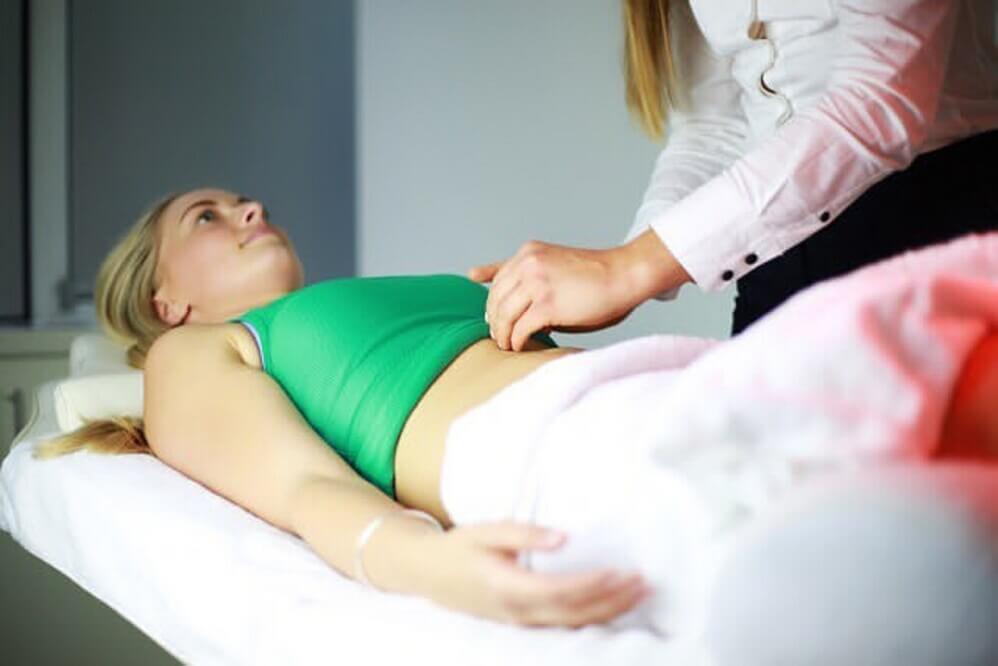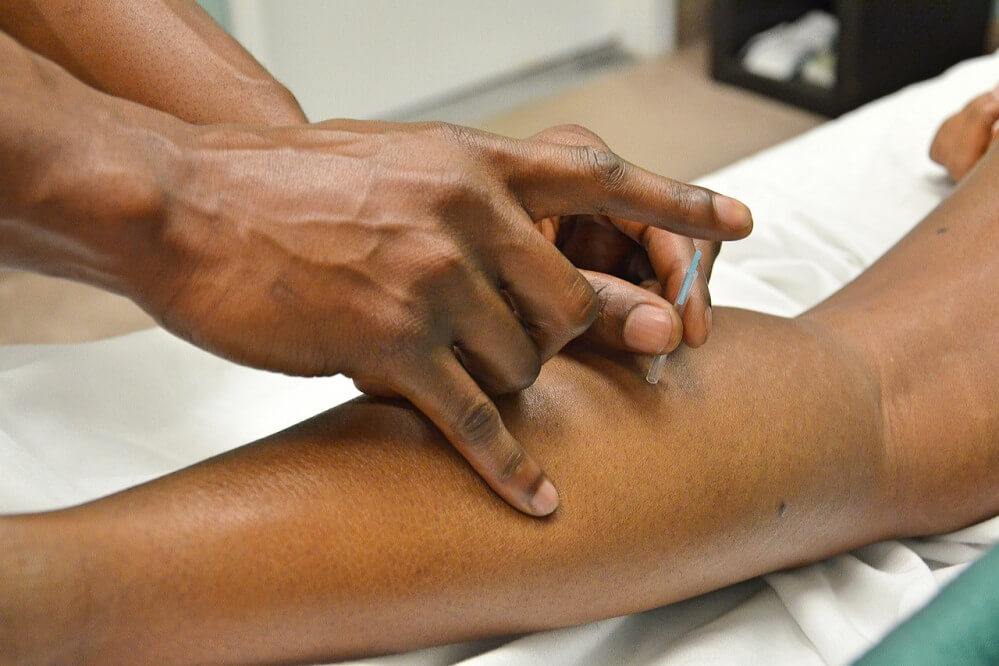It’s natural to question whether acupuncture, a treatment involving the insertion of numerous fine needles, might cause pain. The very thought could stir a sense of unease, especially for those new to the concept.
In this blog post, we aim to address this common concern and strip away the shroud of uncertainty. By providing an in-depth look at this ancient therapy, we hope to reassure and educate our readers about the actual experience of acupuncture, its benefits, and perhaps even inspire you to explore it further.
Understanding Acupuncture
Acupuncture is a fascinating ancient practice with roots in Traditional Chinese Medicine. It works on the idea that our bodies have an energy flow, or ‘qi,’ which can be balanced by inserting super thin needles into specific points. From a Western viewpoint, acupuncture stimulates our nervous system, triggering the release of feel-good hormones.
Acupuncture is usually performed by penetrating the skin with thin metal needles at specific acupuncture points in the body; however, there are also needleless options. This practice is most commonly used to relieve pain, but it can also be used to reduce stress, improve overall health, and treat a variety of conditions, such as:
-Headaches
-Dental pain
-Allergies
-Insomnia
-High blood pressure
-Nausea and vomiting
-Anxiety and depression
-Menstrual cramps
-Respiratory disorders
-Neck pain, etc.
Addressing the Big Question: Does Acupuncture Hurt?

Contrary to the many myths about acupuncture, acupuncture doesn’t inflict pain. In fact, the majority of people who undergo the procedure prepared experience little or no discomfort at all. What’s more? Post-treatment, you can look forward to a sense of lightness, calm, and a newfound connection with your body.
Perception of pain
When it comes to acupuncture, the million-dollar question most people want to be answered is, “Does it hurt?” The concept of pain, particularly in medical treatments, is highly subjective and can differ greatly from one person to another. What one individual may find mildly uncomfortable, another may perceive as considerably painful. This variation is due to our unique biological makeup, personal experiences with pain, and our individual thresholds.
Perception of pain is not a simple linear process; it’s a complex interaction involving our nerves, brain, and even our emotions. When a potentially harmful event occurs, specialized nerve endings, called nociceptors, send signals through peripheral nerves to the spinal cord and then to your brain, which interprets these signals as pain. This perception can be influenced by many factors, including but not limited to our mood, attention, stress level, cultural background, and previous experiences with pain.
In the case of acupuncture, many people associate the procedure with the idea of being pricked with needles, which naturally invokes the idea of pain. However, it’s essential to remember that acupuncture needles are nothing like the needles used for injections or drawing blood. They are much thinner, and the technique employed when inserting them is entirely different.
In the following sections, we will delve deeper into the actual sensations experienced during an acupuncture session and the factors that can influence any discomfort. Our aim is to demystify the process, debunk common misconceptions, and provide a comprehensive understanding of what to expect during an acupuncture treatment.
Sensations experienced during acupuncture
Acupuncture, contrary to common belief, is not typically described as a painful process. While the sensation varies from person to person, it is generally reported as a slight prick or pinch upon needle insertion.
Once the needle is in place, a variety of sensations can be felt, including heaviness, warmth, tingling, or a gentle throbbing at the needle site. These sensations, commonly referred to as ‘De Qi’ in Traditional Chinese Medicine, are a sign that the body’s energy is being accessed and manipulated. Many practitioners believe that the occurrence of ‘De Qi’ is an essential aspect of achieving the therapeutic benefits of acupuncture.
However, these feelings should not be confused with severe or sharp pain. If a patient experiences anything beyond mild discomfort, it’s crucial to inform the practitioner immediately, who can then adjust the placement or depth of the needle.
Remember, every person’s experience with acupuncture will be unique, and it is okay to have different sensations or reactions to the treatment. The key is open communication with your practitioner to ensure your comfort throughout the session.
Factors influencing pain or discomfort

Several factors can potentially influence the level of pain or discomfort experienced during an acupuncture session, such as:
- Needle Gauge and Depth of Insertion: Higher gauge needles are thicker and can potentially cause more discomfort than thinner ones. Additionally, inserting needles more deeply may risk striking a blood vessel or nerve, which can result in pain.
- Practitioner’s Skills: The skill and technique of the practitioner play a significant role in the overall experience. Practitioners employing heavy-handed techniques may inadvertently cause unnecessary discomfort or even pain.
- Treatment Location: According to Traditional Chinese Medicine (TCM), hands and feet harbor numerous vital energy points, making them potentially more sensitive. As such, acupuncture on these extremities might trigger stronger tingling sensations or discomfort.
- Individual Pain Tolerance: Everyone’s pain tolerance varies. If a needle strikes a blood vessel, nerve, or muscle, certain patients might experience heightened sensations or pain.
Thus, it’s crucial to communicate openly with your practitioner about any discomfort felt during treatment to ensure an optimal and comfortable acupuncture experience.
The Psychological Aspect of Pain in Acupuncture
Pain is a multifaceted experience with both physical and psychological components. In acupuncture, understanding the psychological aspect of pain is vital, as it can greatly influence an individual’s experience. Let’s delve into how the mind can alter our perception of pain in acupuncture and strategies to manage it effectively.
The placebo effect
A significant psychological element in acupuncture is the placebo effect, where a patient experiences perceived relief or improvement due to their belief in the treatment’s efficacy. Acupuncture, being a holistic practice, is influenced heavily by this phenomenon. Individuals who go into the procedure with positive expectations and a strong belief in its healing abilities may perceive less pain or discomfort.
The role of expectations and anxiety in pain perception
Expectations and anxiety can significantly impact one’s perception of pain during acupuncture. For instance, if a person anticipates a high level of pain, the anxiety related to this expectation can make the actual experience more uncomfortable than it inherently is. This is a manifestation of the “nocebo effect,” the opposite of the placebo effect, where negative expectations lead to worse outcomes.
Strategies to reduce anxiety before and during treatment

Understanding the psychological aspects of pain allows for the implementation of strategies to reduce anxiety before and during acupuncture treatments.
- Education: Familiarizing oneself with the procedure can help in reducing anxiety related to the unknown. Knowledge about the thinness of the needles, the sensations to expect, and the benefits of the treatment can help calm nerves.
- Relaxation Techniques: Techniques such as deep breathing exercises, guided meditation, or progressive muscle relaxation can help to relax the body and mind, reducing anxiety and thereby potentially decreasing pain perception.
- Open Communication: It is important to discuss any fears or concerns with your practitioner. They can provide reassurance, alter techniques, or adjust the treatment plan to ensure comfort.
- Mindfulness: Focusing on the present moment rather than anticipating discomfort can help reduce anxiety levels. Consider the sensations as part of the healing process, not as a source of pain.
The psychological aspect of pain in acupuncture is a crucial element to consider for a comfortable and beneficial experience. By implementing effective strategies, one can minimize anxiety and manage pain perception, enhancing the overall benefits of this ancient practice.
Tips for a Painless Acupuncture Experience

A painless acupuncture experience is primarily about preparation, choosing the right practitioner, and maintaining open communication. Here’s how to navigate each of these aspects for the best possible experience.
Selecting a qualified practitioner
- Certifications and Qualifications: Ensure your acupuncturist holds a valid license and is certified by a recognized regulatory body. A properly trained acupuncturist should have substantial knowledge of anatomy, needle placement, and hygiene standards.
- Experience and Specialization: An experienced practitioner will have a broader understanding of patient needs and how to make the experience as comfortable as possible. If you are seeking treatment for a specific condition, consider looking for practitioners who specialize in that area.
- Personal Referrals: Personal recommendations from friends, family, or your primary care doctor can often lead to trusted practitioners. They can share their experiences regarding the practitioner’s approach, the effectiveness of the treatments, and the overall comfort during the sessions.
- Initial Consultation: Don’t hesitate to schedule an initial consultation with potential acupuncturists. This meeting can help you gauge your comfort level with them, understand their approach to treatment, and assess the clinic’s hygiene and comfort standards.
By thoughtfully selecting a qualified practitioner, you set the foundation for a positive acupuncture experience.
Preparing for your session
- Physical Preparation: Avoid having a full meal immediately before your session but don’t go on an empty stomach either. Also, ensure you’re well-rested and hydrated.
- Mental Preparation: Calm any nerves by educating yourself about the process, practicing deep-breathing exercises or mindfulness techniques, and setting positive expectations about the treatment.
Communicating with your practitioner
- Expressing Concerns or Fears: If you’re nervous about the treatment, don’t hesitate to express your feelings to the practitioner. They can reassure you and possibly adapt the treatment to make it more comfortable for you.
- Discussing Personal Pain Threshold: Be open about your pain tolerance level with your practitioner. This transparency can guide them to adjust their needle application techniques to ensure a more comfortable experience for you.
The Bottom Line
Acupuncture, a time-honored practice, opens a new door towards holistic wellness, perfectly complementing your current health routine. Yes, you might feel unusual sensations, but most people perceive these as part of the intriguing healing journey rather than discomfort.
We warmly invite you to visit our Holistic Wellness Center, based in Columbus, OH. We focus on your comfort and overall well-being, ensuring each acupuncture experience is as rewarding as possible. Remember, everyone’s journey is unique, and acupuncture could be the surprising addition that revolutionizes your health routine.
Frequently Asked Questions
How long does an acupuncture session last?
Although the length of an acupuncture session depends on the area treated, most acupuncture sessions last from 30 to 90 minutes.
How often should one undergo acupuncture for effective results?
Typically patients start noticing positive results after two or three acupuncture sessions. However, the total number of sessions depends on the results, progress, and treatment plan. Commonly, patients undergo eight to twelve acupuncture sessions, once or twice a week.
What should one expect after an acupuncture session?
After an acupuncture session, individuals often experience a sense of calm and relaxation, though some might feel energized due to the release of endorphins.
Temporary, minor side effects such as slight dizziness, minor bruising, or soreness at the needle sites might occur but generally dissipate quickly. Some people also report an emotional release or a sense of clarity post-treatment.
Depending on the reason for seeking acupuncture, improvements in symptoms may be immediately noticeable or might require a series of treatments to manifest. Always remember to listen to your body and rest if needed after the session.
Can children undergo acupuncture?
Yes, children can undergo acupuncture. This practice is often used to treat a variety of pediatric conditions, such as digestive issues, sleep problems, or even certain behavioral issues. However, it is crucial to ensure the practitioner has experience and specific training in pediatric acupuncture.
With children, acupuncturists often use gentler techniques and may employ other methods of stimulating acupuncture points, such as using pressure or low-level lasers, instead of traditional needles.
As always, it is important to have a thorough discussion with a healthcare provider about the potential benefits and risks before beginning any new treatment for a child.